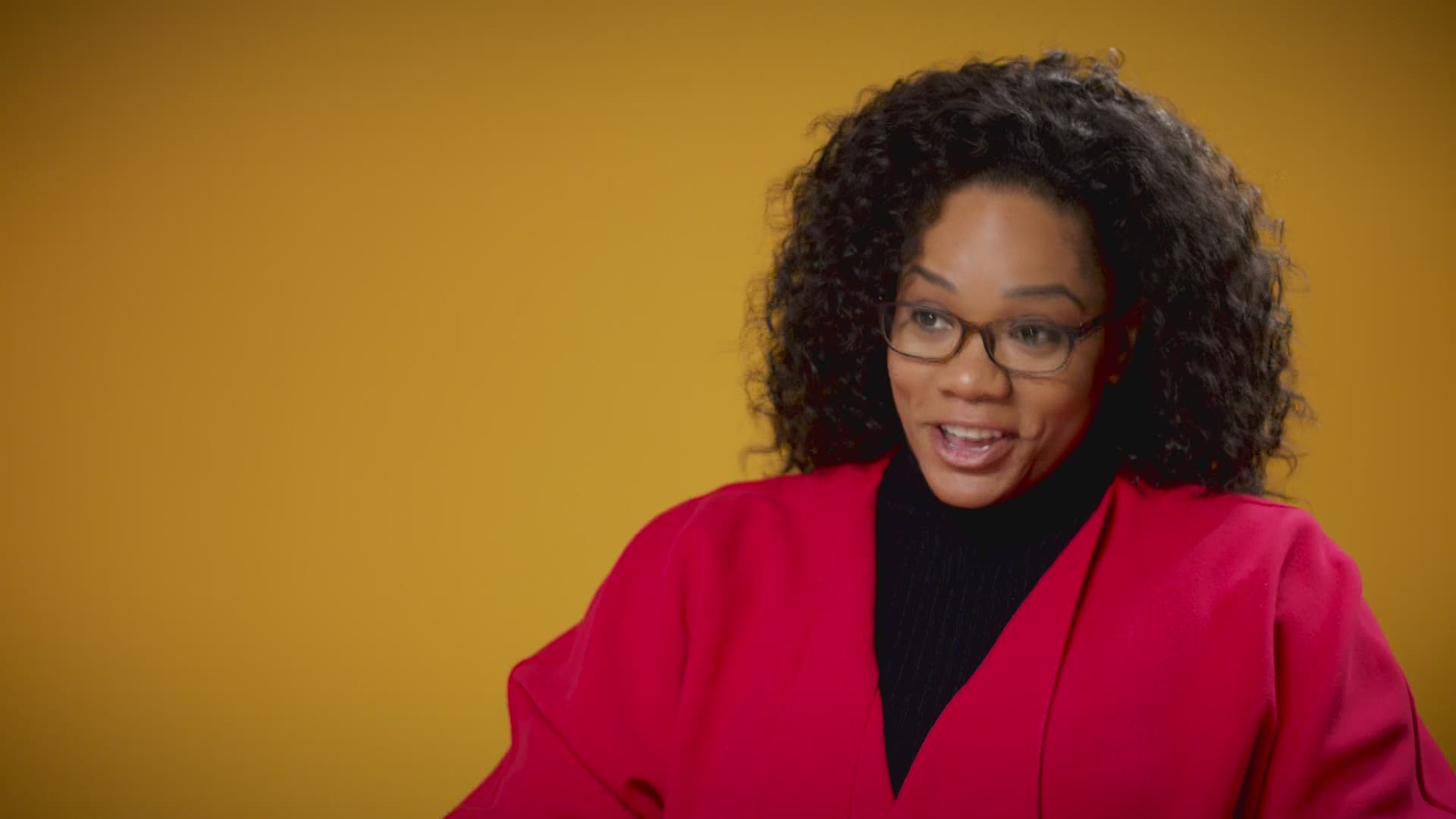WFAA's Tashara Parker recently sat down with Lauren Carter to discuss the intersections of Black hair, particularly in professional settings.
Carter is a Learning Specialist in North Texas. She shared her hair story with WFAA on a segment of Rooted. Below is that story.
Lauren: I was always very aware of the role my hair played in my life.
Tashara: What does Black hair mean to you?
Lauren: Black hair to me is not just the look. It is an expression. It is a way of life. It is a feeling.
Your hair, especially Black hair, allows you to play around with it in so many ways.
Tashara: Tell us about your experience when you finally decided to wear your hair in big curls.
Lauren: I remember leaving my room— because I worked in residence life, I lived where I worked— and I remember leaving my room and stepping off the elevator, and there was a faculty member in the lobby amongst all the other students. I had worked with them before, and I remember them seeing me and the first thing out of their mouth was, “Is that all your hair?”
It wasn't, “Hey, how are you? It's nice to see you. How are things going?” It was really just, "Is that all your hair?”
In that moment, I had to decide how I would respond while also trying to process all of the emotions that were coming up because it wasn't just me and this individual talking, it was a crowd of students.
Although we work together and we were friendly, we weren't like best friends, so it wasn't like a, “Oh this is just a conversation amongst friends like this.”
It wasn't the first time somebody had asked me if how I was wearing my hair was all of my hair.
I got that question when my hair was straight, I got that question when my hair was in big curls.
I got that question when my hair was in braids. And so in that moment, although it was uncomfortable, it allowed me to see that no matter how well my hair was, I was going to get questions about it.
That meant that I could either wear it how I wanted to and get those questions, or I could try to spend more time that it already took to get my hair done to figure out 'How can I wear it in a way that is going to be considered professional?'
Tashara: I consider that a microaggression. Have you had any other experiences when microaggressions were kind of tossed your way and you had to figure out how to handle those situations?
Lauren: Microaggressions have always been a part of my experience. I mean even to this day, something as simple as, “Is that all your hair?" or "Can I touch your hair?"
Or, in the midst of asking me, "Can I touch your hair?” their hand is already in my hair.
Or, if it's in a certain style, "How do you wash it? Do you use wash it?"
I don't want to speak for everyone, but I think for me because it's been a part of my experience, and it's been a part of my experience for so long, I just figured out a way to respond.
And to also make sure that I'm taking care of myself, so that when those emotions come up, I can determine very quickly if this is going to be a teachable moment or if this a "I just need to go somewhere else" and maybe we'll revisit this later when it can be a teachable moment.

